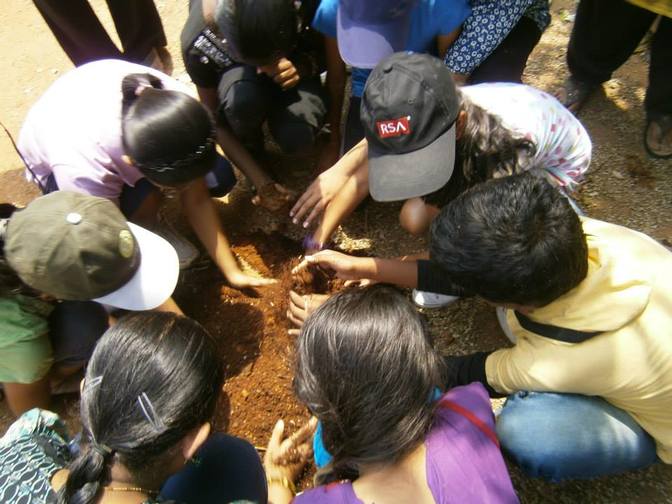Parents are worried about their children’s studies, or complain about the quality of schools. We also read in the papers about 70% of engineers being unemployable.Insufficient and ineffective teacher training and the humongous stress that children go through. The education system is not at all in good shape today.It goes without saying that a majority of parents are worried about their children’s studies. Or complain about the quality of schools, the high cost of education, the fear of rebellious children and above all, the marks they get in their exams. We also read in the papers about 70% of engineers being unemployable, increasing use of drugs and alcohol by students, insufficient and ineffective teacher training in the country and the humongous stress that children go through. We need to see the writing on the wall — that the education system is not at all in good shape today. Clearly many things have changed in the world and education and life is not what it used to be, say 4 or 5 decades ago, when the crises were not evident. Today, children need confidence, not just marks; they need to face unexpected situations, not just the ‘expected questions’ from the syllabus; they will need a stronger philosophical and spiritual grounding since they will face greater complexities and stresses of everyday life; they will need to learn to co-create communities and conserve nature since environment and communities, the two great fosterers of wellbeing are being decimated everywhere. To deal with the new situations in life, we certainly need new perspectives and action in education. Around the world today, amongst the cracks in the concrete, we have alternatives sprouting and one trend is that of holistic education. Vertical Divider
A broader take Students, who have passed out of school, and their parents largely aspire for the Science stream to get seats in Engineering and Medical colleges. while ignoring Humanities, Arts and Crafts and vocational training. Yet today, it is well known that these streams do add to the happiness of an individual. Education tends to address the child ‘neck up’ and leaves out the rest of the child, resulting in an overdose of textbooks and a neglect of experiential learning. This fragmentation erodes not only the wellbeing of the youngsters but of society as a whole as well. This is nothing new — many renowned Indians like Rabindranath Tagore, Mahatma Gandhi, Sri Aurobindo, Jiddu Krishnamurti and others have talked of the importance of addressing the ‘whole child’. The world today celebrates the conveniences and luxuries brought in by science and technology — the cars and planes, the gadgets and gizmos, not to forget the cosmetics, fast foods and more. We have now woken up to the fact that our consumerism and lifestyle are directly connected to global warming and climate change. But do we realise that they are also connected to the kind of science that our modern civilisation has believed in? Thinkers on sustainability now acknowledge that reductionist science is the major cause of multiple crises the world faces today. A science that studies and supports the use of the part and does not see or care about its effect on the whole. During the Renaissance in Europe, Rene Descartes is credited with his very powerful statements that led to a great split — between matters of the spirit which were to be dealt with by religion and physical matter to be dealt with by science. So, today we have ‘value free’ science, which can usher in chemicals that cause cancer, weapons that can cause mass destruction and a socio-economic system that fosters growth at the cost of our very survival. The foundations of our education system seems to be the reductionist science and technology that has dragged in major environmental and spiritual crises. Isn’t it time to begin thinking about holistic science and holistic education? New responses — how?
So where does one start? How do we bring in new responses to our current situation? There are no easy answers to be sure. But what is certain is that solutions may not come from the huge centralised education systems we have. Bottom-up solutions are tough since the education we have been subjected to has minimised our ability for critical thinking, to see the real, whole picture and the pioneering zeal to revamp the system. Top-down solutions are difficult since the powerful will not give up their power that will get eroded if the centralised systems are dismantled. So, around the world today we have a range of small schools and colleges that are sprouting up like lilies after the rain. Some are formal institutions, some are smaller centres and there are many online learning opportunities as well. Around the country, many civil society organisations and intentional communities are creating their own learning and unlearning spaces. The efforts of the few do seem miniscule compared with the huge impact of mainstream education. But let us remember Gandhiji’s words, “If we are going to bring about peace in the world, we have to start with the children.” We can substitute peace with ‘wholeness’.
0 Comments
Leave a Reply. |
Archives
October 2017
Categories |

 RSS Feed
RSS Feed
